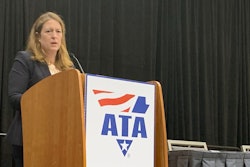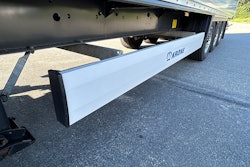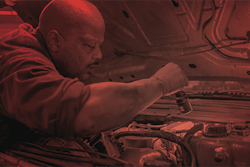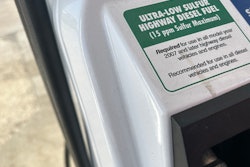Thursday, January 18, the third meeting of the Federal Motor Carrier Safety Administration's Truck Leasing Task Force kicked off with a reminder from task force Chairman Steve Rush, retired founder of fleet Carbon Express, of the panel's mission. In his words: to "prevent predatory people of taking advantage of the drivers, through lease-purchase."
To that end, the group focused in on maintenance covenants in inequitable lease-purchase contracts carriers/affiliated leasing companies and operators. Though the new task presented to the group asked specifically about how terms in lease agreements might impact maintenance of the vehicle itself, much of the conversation around the topic focused on how inequitable contracts in practice can disadvantage the operator leasing the truck, in various ways.
"Often the problem is not necessarily the language of the leasing agreements themselves," said Paul Cullen Jr., task force member attorney with the Cullen Law Firm. "Problems that occur are with the motor carrier or the leasing company’s failure to abide by the agreements, or actions that are apart from the agreement."
Maintenance escrows nickel-and-dimed by a motor carrier or leasing company near end of the operator's time with the company, for instance, to zero them out before severing ties. Another problematic practice can be terms that limit use of service facilities to those owned by or in the preferred network of the carrier itself, with fees charged for taking the truck out of network for service.
Illustrating the latter, some contracts "will say the lease-purchase-ee is responsible for all the maintenance and service," said Owner-Operator Independent Drivers Association Supervisor Jim Jefferson, another task force member. "In some cases you’ll see they have a maintenance fee collected out of the settlements," often building in an escrow account, "but the lessor gets to pick where the truck is fixed. And they charge you for taking it elsewhere."
Greater freedom of choice around maintenance in lease-purchase contracts would allow the free market for services to work like it should, several panel members suggested, and mitigate issues that stem from the lessor carrier's control of both revenue opportunity and, with respect to maintenance, cost of operation for the operator lessee in the worst deals.
In lease-purchase contracts that are inequitable to start with, equipment failures can tend to have a cascading effect, Jefferson and others added. "What’s more important, putting food on the table or getting the oil changed? Because the lease isn’t fair and equitable, [operators] don’t have the funds to maintain the truck and keep them safe the way they should be."










